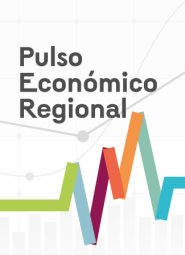Borradores de Economía - Carbon tax pass-through: Incidence with vertical integration and price regulation
The series Working Papers on Economics is published by the Office for Economic Studies at the Banco de la República (Central Bank of Colombia). It contributes to the dissemination and promotion of the work by researchers from the institution. This series is indexed at Research Papers in Economics (RePEc).
On multiple occasions, these works have been the result of collaborative work with individuals from other national or international institutions. The works published are provisional, and their authors are fully responsible for the opinions expressed in them, as well as for possible mistakes. The opinions expressed herein are those of the authors and do not necessarily reflect the views of Banco de la República or its Board of Directors.
The series Working Papers on Economics contributes to the dissemination and promotion of the work by researchers from the institution. On multiple occasions, these works have been the result of collaborative work with individuals from other national or international institutions. This series is indexed at Research Papers in Economics (RePEc). The opinions contained in this document are the sole responsibility of the author and do not commit Banco de la República or its Board of Directors.
Abstract
The impact of carbon taxes on consumer welfare and emissions in the transportation sector is influenced by both regulatory and market dynamics. As the sources of climate emissions from transportation evolve, how will this impact change in the future? Utilizing extensive data from retail fuel stations and wholesalers in Colombia, we estimate the factors affecting the pass-through of a carbon tax on gasoline prices. Our findings reveal that the pass-through to Colombian consumers is significant, often exceeding one. This phenomenon of "overshifting" vanishes when markets are regulated or when gas stations are vertically integrated with wholesalers. These results indicate that as the global use of carbon taxes to address climate externalities from automobile use increases, the welfare loss for consumers may be greater than what current literature, often focused on the United States, suggests.
The results are relevant for future discussions on climate policies, as they indicate that carbon taxes will be effective but probably more regressive than previously thought.





























































